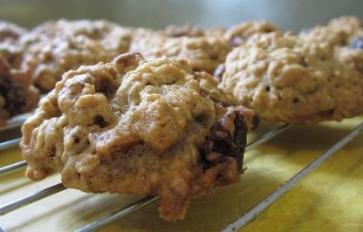
In your quest to eat healthily and maintain a healthy weight, you have to navigate grocery store aisles full of foods that appear healthy but may not be as good for you as they seem. This may be due to confusing labels, marketing campaigns, or just misinformed public perception. You’ll often see words like "low fat" or "no sugar" and "energizing" on packaging, but these labels don't necessarily mean those items are good for you.
With all the choices out there and the many claims on the labels, it's no wonder consumers become confused and sometimes get duped by those in the food industry.
Here are a few examples of foods that are often advertised as healthy or just generally believed to be good for you, but may not be quite as wholesome as they appear.
Wheat Bread
Whole wheat and whole grains are good for you, but you need to look closely at bread and other baked goods that say “whole wheat” on the label. Don’t be fooled by titles like "7-grain bread" and others that make a product seem healthy. You have to look at the ingredients list to get the full picture.
If you see enriched bleach flour as one of the first ingredients, it's not whole wheat bread. If you’re really trying to eat wholesome, make sure you’re checking labels before buying, or you can even try making your own plant-based or fruit-based breads at home! Here are a few more tips to help you choose healthy whole-wheat products.
Granola
Not all granola is created equal. If you look at the labels, you can see the difference in calories and ingredients on various brands. Some granola varieties are chock-full of calories as well as oil and high amounts of sugar.
Look at labels and even consider making homemade granola to ensure it’s made with healthy ingredients.
Yogurt
Like other so-called healthy products, not all yogurts are good for you. Many people eat yogurt for the probiotics and to increase gut health, but flavored yogurts often contain lots of sugar that feeds the bad bacteria in your gut.
Eating flavored yogurt full of sugar is not doing your gut any favors. Look for unsweetened varieties to get the health benefits.
Sugar-Free Anything
Sugar-free does not always mean good for you. To keep the sweet tastes in that food you love, chemists use artificial sweeteners that can be bad for you — maybe even worse than the sugar!
Several ailments and diseases are linked to the use of artificial sweeteners, such as:
- Digestive issues
- High blood pressure
- Cancer
- Obesity
The healthiest way to satisfy a sweet tooth is by eating fruits, which have natural sugar, and using honey and coconut sugars to sweeten foods.
Low-Fat or Fat-Free Anything
Just like sugar-free, fat-free looks good on food labels. When fat is taken out of foods, sugars are often added. Your body burns up sugar quickly, leaving you hungry and wanting more. This can lead to overeating.
Your body needs healthy fats to satisfy hunger and to remain healthy. You can get healthy fats from avocados, tuna, almonds, canola oils and other foods that will truly satisfy your hunger.
Flavored Instant Oatmeal
Instant oatmeal is convenient, and because it's oats, it's healthy right? Not necessarily. Those little packets of flavored oats are often packed with salts, sugars, and other unhealthy ingredients.
You're better off making your oats and adding your own flavorings. You can find plenty of hassle-free recipes for making your own oatmeal online.
Dried Fruit
Fresh fruit is a wholesome way to get natural sugars, but what about dried fruits? It’s a snack you can take on the run, but it’s not the health food you may believe it is.
There are a couple of reasons why dried fruit is not really a health food. First, many dried fruits contain added sugars, so you're not just getting the natural sugar from the fruit itself.
Second, dried fruit is much smaller than fresh fruit, so you may consume more than usual. This can lead to weight gain. Dried fruit can have health benefits, but read labels, avoid added sugars, and practice portion control to ensure that the nutrition negatives don’t outweigh the benefits. As with almost anything else, you can also try using healthy ingredients to make your own!
Take Matters Into Your Own Hands
It’s no secret that mislabeling food and misleading consumers is morally wrong. Doing so can even lead to legal issues, like when Jelly Belly labeled their sports beans as “energizing” and “good for you,” when in reality, they were sugary and labeled in a way that could confuse those reading the ingredients.
However, a legal battle won’t ensue to clear up the confusion about every unclear food label, and sadly, most companies that already practice unscrupulous labeling will probably continue to do so. It’s important for the consumer to know what to look for to find the truly nutritious stuff.
Choosing the right foods is crucial to living a healthy, happy life. Eating right can be a challenge with so many flashy labels and confusing health claims to contend with. To help you choose truly healthy foods, read ingredient lists carefully and take every claim with a grain of salt. Just don’t add too much sodium to your diet!








